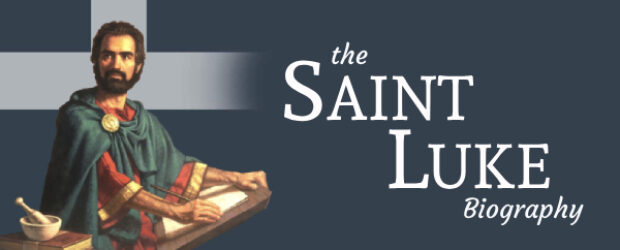St Luke’s Biography
Luke the Evangelist (Latin: Lucas; Ancient Greek: Λουκᾶς, Loukâs; Hebrew: לוקאס, Lūqās; Imperial Aramaic: ܠܘܩܐ/לוקא, Lūqā’; Ge’ez: ሉቃስ) is one of the Four Evangelists – the four traditionally ascribed authors of the canonical gospels. The Early Church Fathers ascribed to him authorship of both the Gospel of Luke and the Acts of the Apostles. Prominent figures in early Christianity such as Jerome and Eusebius later reaffirmed his authorship, although a lack of conclusive evidence as to the identity of the author of the works has led to discussion in scholarly circles, both secular and religious.
The New Testament mentions Luke briefly a few times, and the Epistle to the Colossians’ refers to him as a physician (from Greek for ‘one who heals’); thus he is thought to have been both a physician and a disciple of Paul.
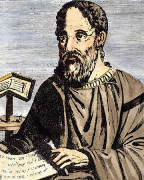 In our day, it would be easy to assume that someone who was a doctor was rich, but scholars have argued that Luke might have been born a slave. It was not uncommon for families to educate slaves in medicine so that they would have a resident family physician. Not only do we have Paul’s word, but Eusebius, St Jerome, St Irenaeus and Caius, a second-century writer, all refer to Luke as a physician.
In our day, it would be easy to assume that someone who was a doctor was rich, but scholars have argued that Luke might have been born a slave. It was not uncommon for families to educate slaves in medicine so that they would have a resident family physician. Not only do we have Paul’s word, but Eusebius, St Jerome, St Irenaeus and Caius, a second-century writer, all refer to Luke as a physician.
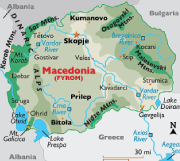 We have to go to Acts to follow the trail of Luke’s Christian ministry. We know nothing about his conversion but looking at the language of Acts we can see where he joined Saint Paul. The story of the Acts is written in the third person, as an historian recording facts, up until the sixteenth chapter. In Acts 16:8-9 we hear of Paul’s company “So, passing by Mysia, they went down to Troas. During the night Paul had a vision: there stood a man of Macedonia pleading with him and saying, ‘Come over to Macedonia and help us.’ ” Then suddenly in 16:10 “they” becomes “we”: “When he had seen the vision, we immediately tried to cross over to Macedonia, being convinced that God had called us to proclaim the good news to them.”
We have to go to Acts to follow the trail of Luke’s Christian ministry. We know nothing about his conversion but looking at the language of Acts we can see where he joined Saint Paul. The story of the Acts is written in the third person, as an historian recording facts, up until the sixteenth chapter. In Acts 16:8-9 we hear of Paul’s company “So, passing by Mysia, they went down to Troas. During the night Paul had a vision: there stood a man of Macedonia pleading with him and saying, ‘Come over to Macedonia and help us.’ ” Then suddenly in 16:10 “they” becomes “we”: “When he had seen the vision, we immediately tried to cross over to Macedonia, being convinced that God had called us to proclaim the good news to them.”
Luke’s gospel shows special sensitivity to evangelizing Gentiles. It is only in his gospel that we hear the parable of the Good Samaritan, that we hear Jesus praising the faith of Gentiles such as the widow of Zarephath and Naaman the Syrian (Lk.4:25-27), and that we hear the story of the one grateful leper who is a Samaritan (Lk.17:11-19).
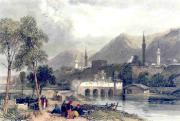 According to the early Church historian Eusebius Luke was born at Antioch in Syria. And it is hard to say if Luke was a Jew or gentile, or something in between, it is clear from the quality of the Greek language used in Luke / Acts that he was one of the most highly educated of the authors of the New Testament. His conscious and intentional allusions and references to, and quotations of, ancient Classical and Hellenistic Greek authors, such as Homer, Aesop, Epimenides, Euripides, Plato, and Aratus indicate that he was familiar with actual Greek literary texts. This familiarity most likely derived from his experiences as a youth of the very homogeneous Hellenistic educational curriculum (ἐγκύκλιος παιδεία / enkyklios paideia) that had been, and would continue to be, used for centuries throughout the eastern Mediterranean.
According to the early Church historian Eusebius Luke was born at Antioch in Syria. And it is hard to say if Luke was a Jew or gentile, or something in between, it is clear from the quality of the Greek language used in Luke / Acts that he was one of the most highly educated of the authors of the New Testament. His conscious and intentional allusions and references to, and quotations of, ancient Classical and Hellenistic Greek authors, such as Homer, Aesop, Epimenides, Euripides, Plato, and Aratus indicate that he was familiar with actual Greek literary texts. This familiarity most likely derived from his experiences as a youth of the very homogeneous Hellenistic educational curriculum (ἐγκύκλιος παιδεία / enkyklios paideia) that had been, and would continue to be, used for centuries throughout the eastern Mediterranean.
 Luke died at age 84 in Boeotia, according to a “fairly early and widespread tradition”. According to Nikephoros Kallistos Xanthopoulos, Greek historian of the 14th century (and others), Luke’s tomb was located in Thebes, whence his relics were transferred to Constantinople in the year 357.
Luke died at age 84 in Boeotia, according to a “fairly early and widespread tradition”. According to Nikephoros Kallistos Xanthopoulos, Greek historian of the 14th century (and others), Luke’s tomb was located in Thebes, whence his relics were transferred to Constantinople in the year 357.
Since the early years of the faith, Christians have regarded him as a saint. He is believed to have been a martyr, reportedly having been hanged from an olive tree, though some believe otherwise. The Catholic Church and other major denominations venerate him as Saint Luke the Evangelist and as a patron saint of artists, physicians, bachelors, surgeons, students and butchers; his feast day is 18 October.
Authorship of Luke and Acts
The Gospel of Luke does not name its author. The Gospel was not, nor does it claim to be, written by direct witnesses to the reported events, unlike Acts beginning in the sixteenth chapter. However, in most translations the author suggests that they have investigated the book’s events and notes the name (Theophilus) of that to whom they are writing.
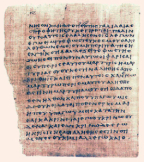 The earliest manuscript of the Gospel (Papyrus 75 = Papyrus Bodmer XIV-XV), dated c. AD 200, ascribes the work to Luke; as did Irenaeus writing c. AD 180, and the Muratorian fragment, a 7th-century Latin manuscript thought to be copied and translated from a Greek manuscript as old as AD 170.
The earliest manuscript of the Gospel (Papyrus 75 = Papyrus Bodmer XIV-XV), dated c. AD 200, ascribes the work to Luke; as did Irenaeus writing c. AD 180, and the Muratorian fragment, a 7th-century Latin manuscript thought to be copied and translated from a Greek manuscript as old as AD 170.
The Gospel of Luke and the Acts of the Apostles make up a two-volume work which scholars call Luke / Acts. Together they account for 27.5% of the New Testament, the largest contribution by a single author.
As an artist
![]() Christian tradition, starting from the 8th century, states that Luke was the first icon painter. He is said to have painted pictures of the Virgin Mary and Child, in particular the Hodegetria image in Constantinople (now lost).
Christian tradition, starting from the 8th century, states that Luke was the first icon painter. He is said to have painted pictures of the Virgin Mary and Child, in particular the Hodegetria image in Constantinople (now lost).
Mass Timetable
Weekend
Saturday (Vigil): 4:40pm Rosary & Rec., 5:00pm Mass
Sunday: 7:30am, 9am & 6pm.
Weekday
Monday: 9:15am Mass, Ador. & Rec.
Tuesday: 6:15pm Ador., 6.30pm Rosary & Rec., 7pm Mass
Wednesday: 9:15am Mass, Ador. & Rec.
Thursday: 9:15am Mass, Ador. & Rec.
Friday: 9:15am Mass, Ador. & Rec.
1st Friday: Ador. 7am-7:30pm.
Healing Mass – 9:15am & 7:30pm.
2nd Tuesday: Ador. 7am-7:30pm.
Mass – 7pm followed by Praise and Worship.
3rd Friday: Mass – 9:15am
Mass to honour St Charbel – 7pm
Ador. & Veneration of the relic.
Ador. – Adoration.
Rec. – Reconciliation.
SOCIAL & LIVESTREAMING
FACEBOOK YOUTUBE INSTAGRAM
Parish Location
1 Beaconsfield St, Revesby, NSW 2212, Australia
Parish Office Hours
Mon, Wed, Thur & Friday: 8:30am to 4pm.
Phone: (02) 9773 9065
Deanery: South West Deanery
Diocease: Parish Boundary
Parking Carpark
Available (Entry Via Beaconsfield St)
Weekdays: Around the Church or on the road.
Weekends: Parking is located in the School yard.
Wheelchair Access: Available (Via Side Door)
Office Team
Priest: Rev Dariusz Basiaga SDS PP JP
Pastoral Associate, Sac.Co. & Secretary: Pauline Sahyoun
Bookkeeper: Maria Amaral
Catechists’ Coordinator: Margaret Hill
Playgroup Coordinator: Marilyn Hardy
Youth Coordinator: Claudia Cazon
Formation Coordinator: Ansir Aquinas
Marketing & Communication: Patrick Tadros
Safeguarding Office: Felicity Chang
Parish Council: Elliott Bowen
Finance Committee: George Mansour

